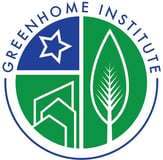Comparison of Energy Standards Code to Passive house: A Report (CLICK THE LINK BELOW
GreenHome Institute Weekly Free CE Webinar Presents:
Event
Comparison of Energy Standards Code to Passive house: A Report - Free CE Webinar
Wednesday, February 21 @ 12 PM EST
Details to view the event are private and will be sent along with your ticket purchase.

